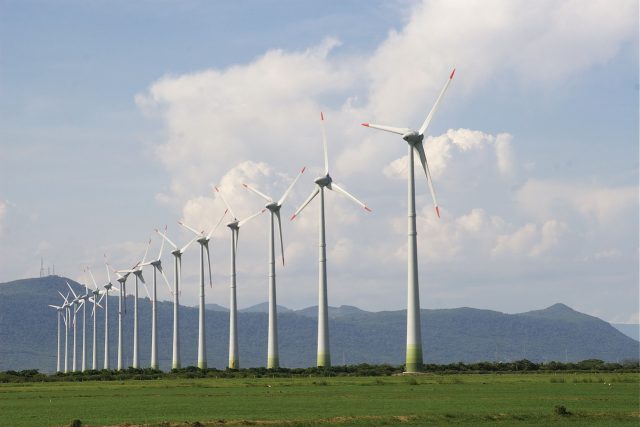Clean Energy Taps Limited CSR Funding, Report Says
Companies are quick to pledge efforts to push renewable energy but found wanting when it comes to making investments in clean energy initiatives under their corporate social responsibility (CSR) heads. According to a report by Mumbai-based consultancy Samhita, which analysed data reported by top 100 BSE-listed firms as per CSR spend, CSR investments in clean energy initiatives amount to a mere 6% of overall CSR spends by these corporate entities in FY 2015-16. Of these 100 companies, only 39 corporates had programmes in clean energy.
This trend continued in FY16-17, with environmental causes receiving limited CSR grants, according to analysis of data reported by the top 100 National Stock Exchange-listed firms by market capitalization. CSR spend on environmental sustainability was recorded at Rs764.45 crore, as against Rs 523.20 crore in FY15-16, the study by Goodera (previously NextGen), a CSR and sustainability management platform, revealed. But, it did not specify as to how much of this amount was dedicated to clean energy.
Out of the 39 companies surveyed by Samhita, 28 published allocation data on energy projects undertaken in FY 2015-16. The total spending on clean energy projects reported between these 28 companies was about Rs183 crore. “Companies may not be implementing CSR in clean energy because of various reasons. Many companies perceive energy access interventions to be highly technical. This could’ve discouraged some companies that did not have capacities and capabilities to implement such projects. Companies also find it difficult to source qualified and technically competent implementation partners in geographic areas of interest,” says Priya Naik, founder and chief executive at Samhita.
Dipankar Ghosh, partner (Sustainability & Climate Change) at Thinkthrough Consulting, says companies still prefer spending most of their CSR funds on projects that directly impact the lives of stakeholders in their areas of operation as they see this as direct responsibility.
“Clean energy projects often require a higher level of funding than is available within the CSR budget of a single mid-sized company. The government can also facilitate this by adding a separate theme devoted solely to clean energy in Schedule VII,” he adds.
The survey suggests that 37 out of 39 companies in clean energy CSR programmes had some form of solar energy involved. The preference for solar, it says, could be attributed to a variety of factors such as geographical feasibility across India, strong push from domestic policy towards solar energy, reduction of the costs in solar energy production, cheaper input prices etc.
Anurag Kapoor, general manager-CSR at Schneider Electric, which has initiated CSR programmes in solar power and skilling training, says that since they have already invested in electrification of rural communities, progression into clean energy was only logical. “Schneider Electric has diversified into solar energy as solar energy is the most potent and feasible way to electrify the non-electrified and off-grid areas of the country. Everybody has a right to clean energy and we are committed towards changing the lives of the people by providing access to clean energy and alleviating fuel poverty” he says.
Rajeev Singhal, vice president (Raw Materials) at Tata Steel, which is also diversifying into solar energy, underlines that the move will help the company move in a direction which will lead to an increased competitive advantage, increased operational efficiency and enhanced profits in the long run. Tata Steel has set up a 3 MW solar plant at Noamundi aimed to address issues related to climate change and increasing demand for natural resources. “Our vision is to strike a balance between economic as well as ecological and societal value,” says Singhal.
The Samhita study underlines that despite the need for access to energy being highest in Bihar and Meghalaya, CSR presence in these areas is low. While, Karnataka and Maharashtra, which face relatively low energy gaps, have a high proportion of companies implementing access to energy programmes through CSR. States like Uttar Pradesh and Madhya Pradesh have high needs matched by high CSR activity, which can be attributed to progressive state policies that encourage the deployment of renewable energy.
The study says companies in power, and oil and gas sectors are most likely to support clean energy projects, strategically aligning their CSR to their business and creating social good based on their core competencies.
“Oil and gas and power plants are mainly located in areas closer to communities that may be energy dark or have intermittent access to energy. Creating solutions for these communities benefits the company both from a business as well as a developmental standpoint as it helps them build better relationships with the community,” Naik of Samhita says.
Among the 39 companies involved in clean energy, the majority focused on product-based solutions. For example, 20 out of 39 companies installed solar street lights in rural areas and 18 distributed solar lamps or lanterns for household use.
(Livemint)
Thank you for reading the story until the very end. We appreciate the time you have given us. In addition, your thoughts and inputs will genuinely make a difference to us. Please do drop in a line and help us do better.
Regards,
The CSR Journal Team













